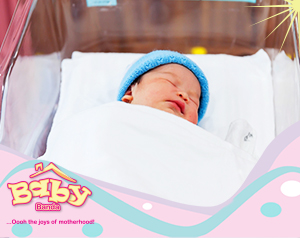Every year in Kenya, it is estimated that 188,000 are born preterm which is below thirty-seven weeks (Business Daily Africa, Rise in preterm births threat to child health in Kenya, Nov 19, 2014). The number of births is slowly rising which has caused alarm among members of the Ministry of Health. Kenya is considered to be one of the leading countries in the number of preterm babies across the world and is placed among the top fifteen. Most of these preterm babies are born with health complications that lead to the death of at least 14,000 babies annually (The Star, A day at KNH’s kangaroo unit for premature babies, Sept 7, 2015). Fortunately, a number of these babies are saved due to the effective interventions that are available in the country.
According to World Health Organization, preterm babies in Kenya can be saved in large numbers if a number of things are done well (Business Daily Africa, Rise in preterm births threat to child health in Kenya, Nov 19, 2014). They recommend better handling of mother and child during delivery and during the post-natal period. Availability of steroid injections that are administered to mums that are likely to go into preterm labour and their babies after birth, kangaroo mother care and sufficient antibiotics to help fight infections in newborns. If you want to know more about Kangaroo care, we have put together some useful information that you can access by reading here
Initiatives in Kenya to increase preterm baby survival rates
Although some families in Kenya, get overwhelmed or condemned when a mother delivers a preterm baby, the actions afterwards can determine the life or death of the child. Using low-cost interventions such as the Kangaroo Mother Care Unit at Kenyatta Hospital has seen the death of preterm babies greatly reduce thus increasing their rate of survival (Business Daily Africa, Rise in preterm births threat to child health in Kenya, Nov 19, 2014). The unit encourages skin-to-skin contact between mother and their preterm baby results in the baby growing much faster and stronger. Also, the babies get to breastfeed which provides nutrition that is essential for their growth and eventual survival; read here for our extensive information on breastfeeding.
The facility also aims to educate new mums on the possibility of raising a preterm baby into a healthy child by following the advice given to them at the hospital. The right information from nurses at the newborn unit in Kenyatta National Hospital and other facilities often helps mothers of preterm babies to be confident of their abilities to take care of their baby even after being discharged. At the hospital infection rates are also much lower as the preterm baby is kept in an incubator and the mum is allowed scheduled visits throughout the day (The Star, A day at KNH’s kangaroo unit for premature babies, Sept 7, 2015)
Even as the Ministry of Health in Kenya do their best to do bring down the growing number of preterm births. The ministry attributes these births to factors such as HIV, STDs, liver infections, malaria, high blood pressure and multiple pregnancies. However, mums can also play a role in the reduction of such births by seeking antenatal care up to four visits when pregnant as recommended by the Ministry of Health officials; read here for more information about antenatal care and visits. These visits ensure that any complications with the baby or mum are detected early and dealt with appropriately. It is also advisable for expectant women in Kenya to eat a balanced and nutritious diet to ensure that the baby gets all the nutrients it needs to develop and strengthen the body of the soon to be mum as well; read here about essential things you need to know about the pregnancy diet.













